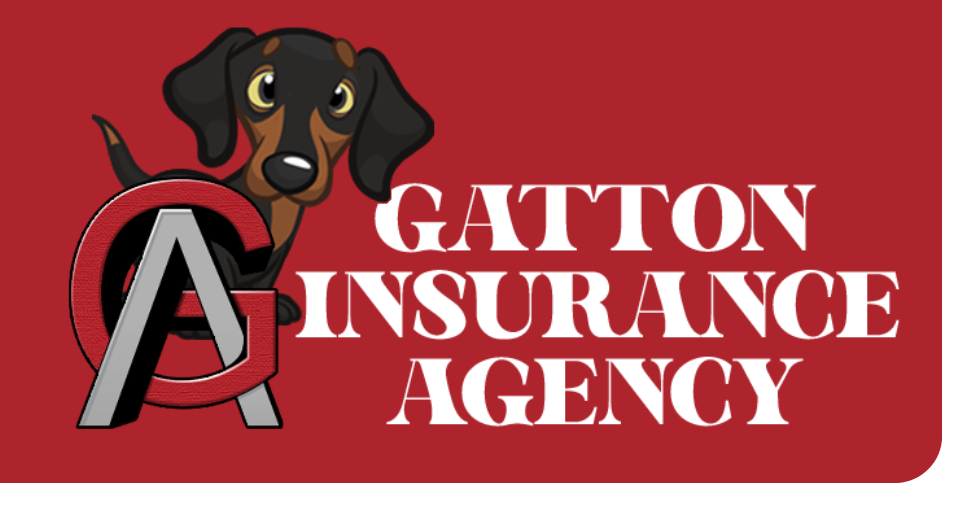What are Surety Bonds?
Surety bonds serve as a crucial tool in the landscape of Indiana’s business environment, functioning on a tripartite agreement among three distinct parties: the principal, the obligee, and the surety. Understanding this structure is essential for businesses that require guarantees for the fulfillment of contracts or compliance with legal obligations.
The principal is the party that is required to perform a specific obligation, which could range from completing a construction project to adhering to regulatory stipulations. The obligee is the entity that requires the bond, often a government agency or a client, to ensure that the principal meets the contractual or legal requirements. Lastly, the surety is usually an insurance company or similar financial institution that guarantees the principal’s performance. In the event that the principal fails to fulfill their responsibilities, the surety provides a financial backing to the obligee, thereby protecting their interests.
The principal’s necessity to obtain a surety bond stems from the need to instill trust and confidence in business operations. These bonds serve not only as a form of insurance but also as a safeguard for the obligee, ensuring that their projects or legal requirements will proceed as intended. In Indiana, various types of surety bonds exist, such as contract bonds, license and permit bonds, and court bonds, each tailored to specific business needs and legal obligations.
In essence, surety bonds are of paramount importance for businesses operating in Indiana, including those aligned with The Gatton Agency, as they facilitate compliance and foster trust in contractual relationships. By providing a guarantee of performance, these bonds enhance the integrity of the business process and protect all parties involved from potential risks associated with non-compliance.
Types of Surety Bonds
Surety bonds are vital instruments in Indiana’s business landscape, serving as a guarantee that contractual obligations will be fulfilled. Understanding the various types of surety bonds can help businesses and individuals protect their interests while complying with legal requirements. Among the prevalent categories, contract bonds take center stage, particularly in construction and service contracts. These bonds ensure that the contractor will perform the work according to the stipulated terms and standards. When a contractor fails to meet these obligations, the surety bond provides financial compensation to the project owner, safeguarding their investment.
Another important category is license and permit bonds, which businesses often require to obtain necessary licenses or permits to operate in Indiana. These bonds serve as a safeguard for regulatory agencies, ensuring that businesses adhere to local laws and ethical standards. Failure to comply with regulations can result in penalties or revocation of licenses, thereby making these bonds crucial for lawful operation in the marketplace.
Court bonds, also referred to as judicial bonds, play a significant role in the legal sphere. These bonds are typically required in court cases to ensure that a party will fulfill specific obligations, like paying a judgment or adhering to a court order. Parties involved in legal proceedings, whether plaintiffs or defendants, may need to secure such bonds to protect against potential financial liabilities that could arise during litigation.
Each type of surety bond serves a distinct purpose and functions to protect the interests of all parties involved, including businesses, regulatory bodies, and the judicial system. Understanding these various bonds can assist Indiana businesses in navigating the complexities of their industry while ensuring compliance with regulations. As the landscape evolves, the necessity for such protections continues to be paramount, illustrating the importance of consulting with professionals such as The Gatton Agency for tailored insurance services.
Importance of Surety Bonds for Businesses
Surety bonds play a vital role for businesses operating in Indiana and beyond, serving as a crucial tool for establishing credibility and trustworthiness. In a competitive landscape, having a surety bond can significantly enhance a company’s reputation by demonstrating a commitment to fulfilling obligations. This reassurance speaks volumes to potential clients and partners, showcasing that the business is financially stable and complies with the necessary regulations. The presence of such bonds becomes particularly critical in industries where compliance is mandatory, thereby ensuring that the business adheres to local laws and industry standards.
Furthermore, surety bonds act as a safety net for various stakeholders involved in a project or transaction. When a business is bonded, it guarantees the completion of the work or service as specified in the contract. This promise not only fosters client confidence but also protects them against financial losses resulting from non-performance. For instance, if a contractor fails to meet their obligations, the surety company steps in to cover the loss, thereby solidifying the importance of having a bond in place.
In addition to credibility and compliance, surety bonds facilitate business opportunities. Many clients and government agencies require contractors and service providers to carry bonds before awarding contracts. This requirement can be a determining factor in the tendering process, making it essential for businesses to obtain these bonds to qualify for projects. By successfully securing a surety bond from reputable providers like The Gatton Agency, Indiana businesses can increase their chances of winning contracts and gaining new clientele. Ultimately, the strategic importance of surety bonds cannot be overstated, as they not only ensure legal compliance but also provide peace of mind to clients in all business engagements.
When Do Indiana Businesses Need Surety Bonds?
In Indiana, the requirement for businesses to obtain surety bonds is influenced by various factors, particularly the industry and specific regulatory obligations. One of the primary situations that necessitate a surety bond is participation in construction projects. Many contracts for public works require contractors to secure a bond, ensuring they will complete the work per the specified terms and conditions. This bond protects project owners and taxpayers from financial loss should the contractor fail to fulfill their duties.
Additionally, licensing requirements for certain professions also mandate the acquisition of surety bonds. Various businesses within sectors such as real estate, auto dealerships, and financial services must obtain bonds as a condition of obtaining the necessary licenses to operate legally in Indiana. The purpose of these bonds is to guarantee compliance with industry regulations and provide compensation for any damages resulting from negligence or misconduct.
Furthermore, other instances where businesses in Indiana need surety bonds may arise from specific state regulations. For example, businesses engaged in the sale of vehicles or those providing services regulated by state agencies might be required to secure bonds to ensure they operate in compliance with state laws. This not only safeguards consumers but also fosters a level of trust and accountability within these industries.
It is crucial for Indiana businesses to assess their specific situations and identify potential bonding requirements. Consulting with professionals from The Gatton Agency can provide valuable insights into the necessary insurance and bonding options applicable to each business type. Understanding when and why surety bonds are needed is essential for ensuring compliance with Indiana’s regulations and safeguarding the financial interests of all parties involved.
How to Obtain a Surety Bond in Indiana
Obtaining a surety bond in Indiana is a multifaceted process that requires careful planning and consideration. The initial step involves identifying the specific type of bond required for your business operations. In Indiana, surety bonds may be mandated by regulatory authorities depending on the industry, such as construction or licensing. Understanding these requirements is crucial, as it sets the foundation for the subsequent steps.
Once you have determined the bond type, the next phase is to gather the necessary documentation. Bond companies typically require financial statements, credit history, and details about the business operations. It is advisable to maintain transparency and accuracy in the application process, as any discrepancies may lead to delays or denial of the bond. Additionally, having a solid grasp of your business’s financial health can improve your chances of acquiring a favorable bond rate.
After submitting your application, the bond company will evaluate your business based on several criteria, including creditworthiness, experience, and the nature of the work performed. This evaluation is essential, as it determines the bond’s premium and the risks associated with insuring your business. To navigate this process efficiently, consider working with a qualified insurance agent or broker, like those from The Gatton Agency, who are knowledgeable about Indiana’s surety bonding landscape and can provide tailored advice to meet your needs.
Furthermore, proactive communication with the bond provider can expedite the process. Addressing any inquiries or concerns promptly demonstrates professionalism and enhances your credibility. By adhering to these steps, businesses in Indiana can simplify the surety bond acquisition process, ultimately contributing to their operational success and compliance with local regulations.
Cost of Surety Bonds
The cost of surety bonds for businesses in Indiana is influenced by several factors that are crucial to understand for effective financial planning. At the forefront is the bond amount, which directly impacts the premium businesses will need to pay. Generally, higher bond amounts necessitate larger premiums, meaning a business seeking a substantial bond should prepare for correspondingly elevated costs. The total bond amount is often determined by the scope of the project or contractual obligation, emphasizing the importance of evaluating the requirements thoroughly.
Another significant factor affecting the cost of surety bonds is the applicant’s credit score. Surety bond providers assess the creditworthiness of a business prior to issuing a bond, viewing the credit score as an indicator of risk. Businesses with higher credit scores tend to qualify for lower premiums as they are perceived as more reliable and less risky investments for the surety provider. Conversely, those with poorer credit histories may face higher rates, making it essential for businesses to maintain good credit practices to optimize their insurance costs.
The type of bond required also plays a critical role in determining overall costs. There are various types of surety bonds in Indiana, including contract bonds, commercial bonds, and license and permit bonds, each serving a distinct purpose and therefore carrying different price points. Understanding the specific requirements for each bond type will enable businesses to select the most appropriate options for their needs, possibly leading to significant cost savings. Exploring multiple surety bond providers can also yield comparative premium rates, offering businesses the opportunity to choose the most economical path.
In conclusion, comprehending the factors that influence the cost of surety bonds is vital for businesses in Indiana. By evaluating bond amounts, credit scores, and bond types, companies can better navigate their insurance needs and secure beneficial arrangements.
Common Challenges in Securing Surety Bonds
In the process of obtaining surety bonds, businesses in Indiana often encounter several common challenges that can impede their efforts. One of the primary obstacles is financial stability. Surety bond companies assess the financial health of applicants, requiring evidence of adequate cash flow and profitability. If a business struggles with maintaining a strong financial position, it may face difficulties in securing the necessary bonds.
Another significant challenge can be poor credit history. Surety bond providers typically evaluate the creditworthiness of applicants, which includes considering the credit scores and credit reports of the business and its owners. A low credit score or a history of late payments can raise red flags for surety companies, leading to higher premiums or outright denial of bond applications. Indiana business owners should actively monitor and work to improve their credit profiles before applying for a surety bond to mitigate this issue.
Additionally, incomplete applications are a frequent hurdle. The surety bond application process often requires a variety of documentation, including financial statements, company licenses, and personal credit reports. Applicants who fail to provide all necessary information may find their applications delayed or rejected by The Gatton Agency or other insurance providers. To overcome this challenge, businesses should ensure that they thoroughly complete all application forms and provide accurate supporting documents. It is advisable to work closely with an experienced insurance broker who can guide them through the requirements, thus increasing the likelihood of obtaining surety bonds successfully.
By addressing these common challenges proactively, Indiana businesses can enhance their chances of securing surety bonds essential for their operations.
Maintaining Surety Bonds
Ensuring that surety bonds remain active and in compliance is crucial for businesses operating in Indiana. These bonds serve as a safeguard, helping to establish credibility and providing financial assurance to clients and stakeholders. The importance of maintaining these bonds cannot be overstated, as any lapse can significantly impact business operations and result in financial penalties or contractual breaches. In fact, many industries in Indiana mandated by law or contractual agreements require that surety bonds remain valid throughout the duration of a project or service.
The process of renewing surety bonds typically involves a review by the surety provider, which may require updated financial information or assessments of business performance. It is essential for business owners to keep track of their bond expiration dates and ensure timely renewals to avoid possible disruptions. Failure to renew could not only lead to financial consequences but also damage the business’s reputation—clients may view non-compliance as a lack of reliability or seriousness, which can result in lost contracts or clients opting for competitors that maintain proper bonding.
Monitoring the status of surety bonds should be a continuous practice for Indiana businesses. Regular communication with surety providers about any changes in business operations or finances is advisable. This proactive approach can help businesses stay informed about any adjustments needed for maintaining bonds, as well as any potential risks involved in their operations. Additionally, having an established relationship with a reputable surety agency, such as The Gatton Agency, can facilitate easier management of bonds, ensuring that businesses always meet compliance requirements without unnecessary complications.
In conclusion, the diligent maintenance of surety bonds is essential for Indiana businesses. By prioritizing timely renewals, regular monitoring, and effective communication with surety providers, companies can mitigate the risk of bond lapses and the associated repercussions, thereby fostering a trustworthy and stable business environment.
Conclusion and Key Takeaways
In summary, surety bonds serve as an essential tool for Indiana businesses looking to build trust and credibility within their respective industries. These bonds guarantee that the obligations entered into by a business will be fulfilled, providing a safety net for clients and stakeholders alike. Understanding the various types of surety bonds available—such as contract bonds, license and permit bonds, and commercial bonds—is crucial for businesses to effectively mitigate risk and ensure compliance with state regulations.
It is also important to recognize the role of insurance agencies, such as The Gatton Agency, which specialize in helping Indiana businesses navigate the complexities of securing surety bonds. These professionals can assist in determining the appropriate type of bond for specific business needs, ensuring that companies are adequately covered for various contractual obligations. By consulting with experienced agents, businesses can greatly enhance their chances of acquiring the correct coverage and understanding the application process.
Indiana businesses should take the time to assess their bonding requirements thoroughly. This involves evaluating the types of projects they typically undertake, the potential risks involved, and any legal regulations that may apply to their industry. By preparing adequately and considering the value of surety bonds, businesses can protect their interests and foster positive relationships with clients, thereby enhancing their reputation and competitiveness within the market. Ultimately, a well-structured bonding strategy not only safeguards a business’s financial assets but also contributes to a positive business environment in Indiana.





